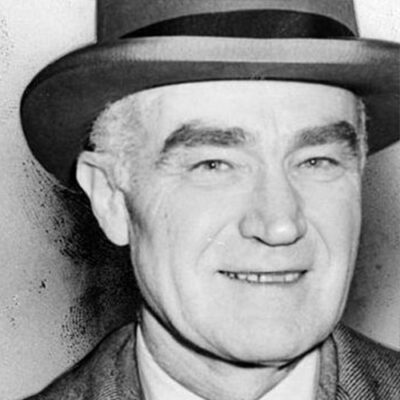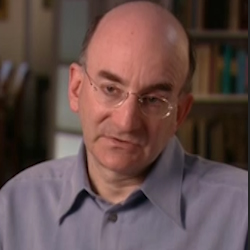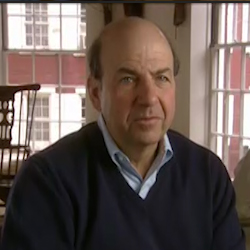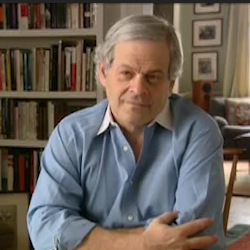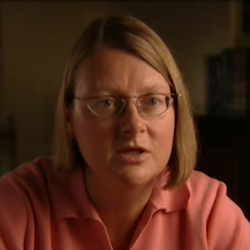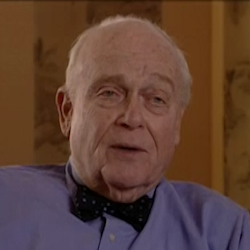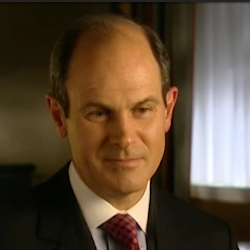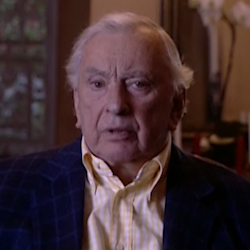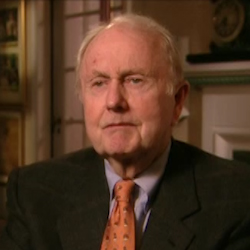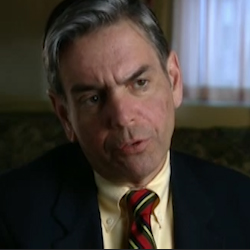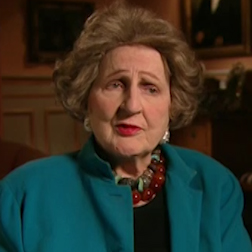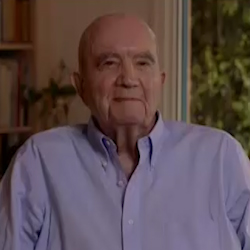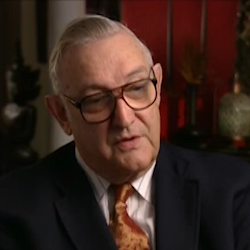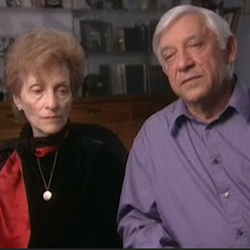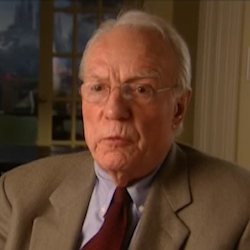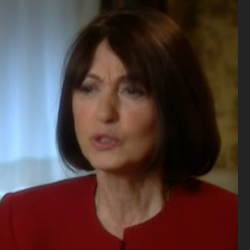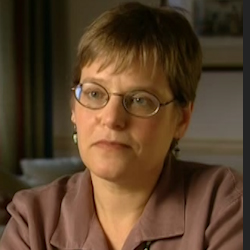Speaker Actually.
Speaker Maybe I’ll jump into the middle.
Speaker Are we ready to go now? We’re ready. OK.
Speaker And.
Speaker Go to a time that you worked on more closely, which is the 50s, and this is something that fascinates me. I’m curious about did. How did.
Speaker What role did life play in terms of American Americans perception of themselves during the 50s? That sort of so-called idealist decade and a films?
Speaker I I think in the fifties, this society was on a great run economically.
Speaker And beginning to come of age. The first part of what Mouche would have called the American century. A vast new surge into the middle class, people living dramatically better than their parents, owning homes, getting college educations because of the G.I. Bill, rising above traditional class restraints.
Speaker And I mean, really the coming of a great new meritocratic society.
Speaker And I think Life magazine reflected this time of growing economic and social confidence that life itself was going to get better by about 10 percent each year. A nation really on a prolonged new run of affluence and increasingly more just socially, culturally and economically. And I think you can find a great deal of reflection in that of that in the pages of Life magazine. A good time, maybe not a great time politically, but a very good time economically.
Speaker What such a move. Your chair. This you.
Speaker In fact, I believe, you know, one of the central novels, very successful novels of that period is a novel. Called the man in the gray flannel suit by Sloane.
Speaker Wilson, and I believe that that is a portrait. Of Luce’s colleague have to break for a second here while I think of his name. You know.
Speaker John, who is the co-founder. Oh, it was it was a portrait of Roy Larson, in effect one of the co-founders of Time Life with Loose.
Speaker Was was his work on civil rights ahead of its time?
Speaker They did a whole series on segregation in Little Rock in a very aggressive way.
Speaker Well, their work on civil rights was better than most, but it really wasn’t that good.
Speaker There was a certain thinness to it. There was a sense on the part of Luce himself that when the Supreme Court had ruled in 1954 on Brown vs. Board of Education, well, that took care of race.
Speaker Good. It’s done. Now we can get on with it.
Speaker Not understanding the immense complexity of what some 200 years of slavery and neo slavery and extreme racism had had done in this country. The real price, economic, social, psychological, cultural.
Speaker I think they were better than most. I mean, I think recluses, Calvinism, his Presbyterianism did not really allow did not allow for the kind of cruel racial prejudice. And I think they did get better. But I would not think of it as a. As a glorious moment, because there was so much else in the magazine that was so deeply disingenuous about American politics. The magazine had such partisanship in terms of Republicans and Democrats, Republicans, Democrats were bad and its attitude towards the Cold War was so primitive that what it was doing on on civil rights got kinda crunched into the corner. I mean, it was an area where he was open and some of the reporting was good, but it wasn’t like I think it dented the society greatly.
Speaker I mean, I jumped back. I just wasn’t so sure I’m 50 for a second, I want to jump back to the 20s. And what you referred to in the book of.
Speaker As the emerging national culture, what was changing in America at that time in terms of communication and how to change that?
Speaker Well, I think a number of things are changing in America. First, the damage that Europe has done to itself. By World War One meant that there was a decline in Europe. And the beginning of an end of a colonial empire throughout the world.
Speaker And if that happened, then America’s strength protected as we were by the two oceans, we were bound to be on an ascent. Even with the depression. And there was going to be a great, great quantum leap in communications driven by radio in time by television. Interestingly enough, in television eventually took out Life magazine. It took away its great role. But in an age of radio, radio made us more one nation, one culture. There was also the beginning of a new, better educated society. And Luce was really ahead of that. I mean, he had an. He was. He was so smart. He was such a great hick. I mean, he was both a sophisticate and a hick. You know, as a missionary kid, he’d grown up in China and he had this very idealized view of American society. America was good. I mean, a kind of a Teddy Roosevelt derivative of muscular Christianity. So America was good and the rest of the world was bad. And he as radio.
Speaker Bonded the nation together as there was this rising level of education.
Speaker Many of the newspapers of that day were slow to pick up the change, slow to pick up that their readers were smarter, better educated, that America was beginning to come into the world. Luce knew it intuitively.
Speaker And Time magazine’s success, I think, paralleled the coming of radio, a rising new, better read audience interested not just in scandal, but in religion, culture, science and the rest of the world. So I think if you look back at that period right after World War One with America really began beginning almost involuntarily, almost against its own wishes to come into the world. The beginnings of America as a superpower loose intuitively is ahead of the curve on that and a beneficiary of changing technology, as in an odd way, it has been very badly damaged in the last 20 or 25 years by the same change in technology.
Speaker I think that maybe my wife coming in, Jane.
Speaker It was how, if at all. Now this is again, a broader question. Did loose change? The role was part of the change.
Speaker Well, I think he felt he was one the first people in print to nationalize the media. I mean, you had Hearst with all those papers out there and you had sort of changed. But here’s Luce with one. I mean, radios going out the same program to everybody.
Speaker And here’s Luce putting out Time magazine and Life magazine and Fortune magazine, which is wonderful magazine, because it because he really was a.. Babbitt. He didn’t like the portrait of American businessmen and squares. I mean, he’s doing a national magazine. The people in the East Coast. And the people of California and the people in the state of Washington, people in Florida are all getting the same magazine. So it’s the first association of print. I mean, we have a New York Times today that is a national edition, but that’s a very important breakthrough and it gives him increasing power and influence.
Speaker What about the fact that.
Speaker And in the early years, nobody ever all these stories are being written in New York.
Speaker But it had the appearance of that. They had people.
Speaker You mean the very beginning? Yeah, well, I can’t really I you know, it’s a little bit distant. I mean, I think there was always a great struggle as time. I mean, I think in the beginning in the beginning, they didn’t have a lot of correspondents in the field as they got more successful.
Speaker They had people in the field overseas, domestic bureaus, and they were very good how they managed to get such good people and to get them to work in anonymity.
Speaker And to have their work changed completely, 180 degrees. Throw around. How they did that, I don’t understand. But they did.
Speaker I guess people got just tired of working for newspapers in in Spokane or El Paso or Kansas City and wanted to get out and get to Washington or overseas.
Speaker So they did. But the voice was always in New York and the voice fit Mr. Lewis’s views, particularly politically. I mean, he he had that great Presbyterian feeling that you should that there was a truth with a capital T.. And your job was to tell the truth and you knew the truth. And therefore, if you reporters in the field gave you what you did not believed to be the truth, even though was very accurate reporting, you just simply had people in New York who knew your truth and re re modeled, declined to make it fit what you wanted it to be.
Speaker There was a great line about him. I think it’s along. In Louisiana, he said, you know, Mr. Lewis, he he’s like a shoe store owner, except all the other shoe store owners.
Speaker They sell all different sizes and shapes. A few shoes. Mr. Mr. Lewis. He only sells shoes that fit his self. Bingo. I mean, his truth would prevail. And that turned out to be a great problem. I think both in his.
Speaker Domestic political coverage. Republican candidate versus Democratic candidates. And obviously in China, the great struggle there over telling the truth in China. And to no small degree and in Vietnam as well.
Speaker What about, you know, one of the internal battles?
Speaker Then you go into quite a bit. And is is. Relates to this is Teddy White and his relationship. Can you describe the relationship?
Speaker Well, one of the most important thing almost about loose is where he comes from.
Speaker He’s a missionary kid and a Presbyterian missionary kid. He grows up in China, by the way. He hates being a Myshkin. They were poor. And when he got to boarding school in Yale, he always felt sort of poor and not quite up to the very select WASP elite that in those days, male elite that dominated those schools.
Speaker So there was a quiet angst and an a sense of being awkward that I don’t think he ever lost, in part because he always was awkward. He was awkward with everybody. He was this bright, ferociously intelligent man who had almost no social radar and had a great capacity to offend the very people that he wanted so badly to charm. So you’re about at this at the start of World War Two, he was one of the very, very few powerful, influential Americans who believe that Asia was important. I mean, we were really significantly more euro or Atlanta.
Speaker Atlantic tilted in those days than we are in today’s contemporary world. But he really, as a missionary kid and roots in China, felt that Asia was important and particularly China was important in here. China had been invaded by Japan much earlier. So China was real to him. And there’s Teddy White this right. Brash, enormously talented, probably no doubt, along with John Hersey, the most talented member of the staff in the field in those days, summa cum laude at Harvard. I mean, great journalist. I mean a role model for people like me. I mean, just way, way ahead of the curve. I mean, great, great reporters. And Teddy is just inhaling China, loving it.
Speaker And everything is very good at the beginning. It’s Harry and Teddy. They both love China. They’re both engaged. There’s this great story and you’ve got this brother. Have a wonderful time together.
Speaker And then under the pressures of World War Two, China under China begins to implode. It is a feudal society. And the pressure of the war and the Japanese and the struggle with the communists is too much. And Chang cannot modernize. He runs a feudal society and it begins to collapse. And Teddy start to cover the collapse of a feudal society assaulted by a new dynamic of modernism, which is both nationalist and communist.
Speaker And.
Speaker Lucia won’t accept this. He will not accept the truth of the incompetence of Tchang, of the incompetence of his army. Of the fact that the soldiers don’t get paid, that the army is failing to do this, that China is losing, and that if if anything, the communists have much more of a mandate with ordinary people. They’re more successful with ordinary people. And. And White is writing this systematically and Moose is blocking. And I think Teddy has a sign in his office.
Speaker The opinions printed in the magazine have nothing to do with the words filed from this office or something like that.
Speaker And it ends up with a very ugly. And Dana, amont of Teddy frustrated, resigning from the magazine. Harry Luce going around saying I fired him and then going back to China. And on occasion referring to him as that ugly little Jewish.
Speaker It gets quite mean. I mean, they make a rapprochement much later in their life, but it’s a historic juncture.
Speaker I mean, and it’s a stark juncture for this country. Do we accept the reality of the rest of the world? Are we trying to impose as loose love to do his reality on what the rest of the world should be like? They should be more like Americans. They should be Christian. They should be Christian, Democratic. Well, China was, you know. And are you out of this? You get who lost China issue the paranoia. China was never ours. It was never going to be a nice Christian satellite of this country. And the stress of World War Two, the pressure of the Japanese, this enormous country coming out of a feudal age was too much and Chang imploded.
Speaker But the truth of that was a truth that Loose could not accept. And it’s a very important demarcation point. And the loose publications behave very, very badly in that period and ended up, I think, helping this country to have a paranoia. About what had happened in China, blaming the Democratic Party for losing it. Which is the seeds of McCarthyism. I mean, technically, Luce is thinks and his proponents think, oh, he was good on McCarthyism. He wasn’t because he put in play the keep him McCarthyism, which is a paranoid view of why China imploded. We lost it. Then you just have to look for the.
Speaker The bad guys. And then out of that becomes a neurosis towards Asian communism that eventually leads to the war in Vietnam, where once again.
Speaker You have time trying to tell people what should be happening in Vietnam as opposed to what is.
Speaker And I sort of replaced Teddy Whiteheads as the daemonic journalist.
Speaker Well, what’s it?
Speaker What did Perry had his own demonic journalist.
Speaker Well, he had more. He had. Well.
Speaker Eventually he did. But I was the I had. I mean, in a way, Teddy White was replaced by a wonderful reporter, a great reporter, Charlie Moore, and a wonderful guy there named Myrt Perry, who is a local correspondent, wonderful man. And they were reporting in 63 and timelike that critical time that it was in effect like an instant replay of China. And as a yem had the same faults in effect that Chang was at the other side, had motivation, dynamic and was winning. The war was barely being fought. And it was being lost and. And that was comparable to what people like me were writing and the the editor, the managing editor, armato for Binger, who really had that part of loose, but the hard, tough will, the political he was auto’s risottos.
Speaker Luce’s real agent on the political side went after reporters like me for being.
Speaker We didn’t have hawks and doves in those days, but for being pessimistic. And they attacked us in two memorable pieces and they were completely wrong. They took the files that Charlie had sent in dry Morde sent in and completely rewrote them. Charlie said we were right and the war was being lost when it came out. Furbish your eyes. It said the war was being won and we were in effect, virtually traitors. And Charlie resigned from the magazine, as did Myrt, and they went to work for other publications.
Speaker And it was it was very much time.
Speaker Time magazine for. They were more hawkish on that war than the Pentagon was in the beginning. I mean, there were a lot of people in the military, uniformed military, who were not that enthusiastic or a little nervous. I think they didn’t understand how tough the B.S. and the NBA would be, but they were not that enthusiastic, enthusiastic. The real enthusiasm in those days was from time life. I, Myrt Perry once told me as he watched all these VIP come out from New York, from Time magazine, he said, Vietnam is our Disneyland.
Speaker Just into stands out. Are we doing up just to revisit that young one? Just briefly, in what way did time attack?
Speaker People like you in the press corps.
Speaker How do you go about.
Speaker It’s a long time since I’ve read those articles and I probably there’s a part of me that is, you know, you have an a reeser in your brain and you probably raised some of that stuff. Just in order to survive some of the uglier stuff said so about you, but a.
Speaker We were reporting there’s a small group of us, five or six, I think about five of us went on to win the Pulitzer Prize. Me, Neil Sheehan, Peter Arnett, Matt Brown, Horse Falls. And we were all reporting pretty systematically that it didn’t work, that the government wasn’t fighting in the. The South Vietnam government was getting weaker by the moment and the V.C. were getting stronger and they were really up to regimental units and they were. I think they’re they really virtually won the war.
Speaker And time didn’t want it to be that way. And so the correspondents out there, Murd and Charlie, more fire. They wanted a press story and. The press story was filed by or in Perry, and it was that the reporters were right and that the war was being lost and the government and the American mission was absolute, you know, caught up in a in a spin cycle. I think someone once said the only exports from this country are rice and American optimism. I mean, it was just I mean, that day that the government, the American mission, the four star generals were going along with career and policy rather than telling the truth.
Speaker And that article, that fire was completely redone to come out that the reporters were up pessimists and we’re not on the team and didn’t go out on missions and were cowards.
Speaker I mean, it was really quite hateful and wrong in all the particulars and went against the file. And there was a great collision. More was about. And Perry were about to resign decorum and who is a very good guy and represented the more enlightened part of Luce, who is the chief of correspondents, came out himself to do another piece and to try and keep more. And Perry from resigning and he personally went out to see the ambassador. I think by then it was Henry Cabot Lodge who said to reporters here, like Halberstam and Sheehan, are really terrific and they’re absolutely accurate.
Speaker And I mean, everything. He got validated what Charlie Moore had written and that piece and this is from your chief of correspondence. And that gets rewritten, so.
Speaker With that, I mean, I think Kleman goes home and Charlie does resign and says something to Kleman like I guess you’re pretty angry at me for what auto’s? None.
Speaker And Clemens says to say, you know, you’re getting from auto what you want to get from auto. And so it was it was it was them wanting one outcome and therefore being willing to destroy anything else. That might deviated from and they were very shrewd. I mean, if you if you have one little voice, as they did and you’re saying the war is being won and most of the other reporters are saying it’s being lost and it’s very important. In that kind of totalitarian viewpoint to destroy the legitimacy of the other reporters, people like us didn’t realize that. I mean, The New York Times wasn’t going to go around writing articles attacking. Time magazine. I mean, everybody else was playing by these nice, genteel rules, not Mr. Losen, not Mr. Phurba anger. So the first thing they had to do was sort of destroy the legitimacy of all the other reporters. And since we were all quite young, you know, 28, 29, I think Neal was all 25. We didn’t hadn’t really made reputations yet. They could go after us. So but they were very shrewd in saying we have to make. We have to knock out any voice of pessimism. And that’s why they went after us.
Speaker You talk about in your book and this again. She had about.
Speaker Looses curiosity versus his certitude.
Speaker You know, there’s a. Can you explain?
Speaker There’s a real split personality here. There is this Misch kid from China. Who is really incredibly curious, open minded, wants to know everything about everything. I mean, has this is I mean, most of the great editors in our age had been Hicks because they want to know things. Tell me about that. Tell me about that. And Moose was a great hick. I mean, and there was a a shrewdness and an instinct here. He had a great pitch for what was happening. And I mean, one of the reasons the magazines were so successful was his curiosity and which he passed on. Why is that happening? What about this? Tell us about art. Whose goes to Parazit, has dinner with the bureau chief and says, are the French happy moose goes to a a soccer game in France and they’re ninety thousand people there. And as they’re leaving the game, he turns to his. What it is. Reporter says, how many of them are communist? I mean, he’s inside, you know, other French happy who can tell their whole nation if he’s happy or not. But there was this curiosity and it made the mangas. I want to know about that. You know, find out about that. He will.
Speaker I think Claire Lewis once wanted a a pearl necklace. And he said to one of his assistants who was a woman, why do women want pearls? A woman tried to explain why pearls were important.
Speaker Well, what makes them so valuable? Suddenly, there’s a whole Life magazine take out on pearls. And what what are the levels of beauty in value. So there was this part of this relentless driving curiosity, and then there was the other part.
Speaker And the other part was the stern Calvinist with the ferocious Presbyterian who’d been raised in a missionary society and was a journalistic missionary and who knew truth with a capital T and thought it was his obligation to put his imprimatur with truth in every page of every issue, particularly where it was political or in foreign policy. Not so much really. Maybe in art, new news or news about movies or theater.
Speaker But out in the front of the book, the suspect back the book was and who looked down on people like the Souls Burgers because they merely published what their reporters in the field reported and were not up to the sense of obligation of what is the truth, as we thought. I mean, who kept their their own version of truth on the editorial page? There was no limit. There was no such limitation in the pages of Time magazine. So there was this.
Speaker I mean, he knew and he knew what was good for the world he knew was good for America and he knew what was good for the world. What was good for America was to be great power and push all kinds of American qualities on these people who would have better lives if they were more like us.
Speaker Is that what the American Century editorial is about? I mean, was it let me come back and let me rephrase that.
Speaker Was that pivotal in its time?
Speaker The American Century? His editorial in 1941, which I guess was before I.
Speaker Terry Lewis was really very, very smart. That man, hugely flawed, quite brilliant with great intuitive senses. And I think the American century is pieces very important one, it crystallizes something that is happening.
Speaker That this country is going to come to a zenith of power and this country, which is traditionally isolationist. So much of its nature formed by the two oceans, is going to have a responsibility in the world. Like it or not, it has been shirking it, particularly Luce’s view, for too long. And it did World War One, and then it retreated back. But the technology of the world has so changed itself. The technology of warfare has so changed up that American can no longer be this isolationist nation. And the very coming of World War Two has shown the vulnerability of Europe. The torch is being passed from the British to us, and therefore there is this obligation and we will live up to it. So there was a visceral sense politically that a time had happened and he was right about that. And then there was the missionary sense that we should do it anyway and that the world would be a better part. I mean, it’s something that’s it’s a very interesting, complex mixture of a historic moment of the rise and ascent of America, comparable to bride Eisenhower having to tell Bernard Law, Montgomery, Monty, you can’t talk to me like that. I’m your boss. I mean, the ascent of America and the decline of the British in the other European democracies because of two suicidal wars. And then you blend into that the religiosity, the missionary quality of Luce, that this is a good thing for America and a good thing for the rest of the world to be more like us.
Speaker So when she comes through, will you do it?
Speaker You touched on it briefly. Seventeen. Let’s talk.
Speaker Fortune and how it came about.
Speaker Fortune was really a great magazine. You know, if you go back and look at the early copies of Fortune those early years, it’s brilliant. The artwork, the writing. I mean, the people who wrote Ford were hardly predictable. If you go like Ken Galbraith and others, I mean, as a really distinguished roster of writers, I think it came about, again, out of Luce’s great vision.
Speaker And he really had it. I mean, he really had a vision. I mean, he was on vacation floor. And again, you could get you into trouble. But I mean, not to underestimate that this was a real player. This was somebody special.
Speaker And he did not like the portrait of American business as done through Sinclair Lewis, a Babbitt, a small, parochial figure.
Speaker Oh, yes.
Speaker So he did not. He did not like the idea. The portrait of American business, and I think rightfully so as a bunch of small town Babbitts, I mean, the kind of portrait.
Speaker Very accurate. One of one aspect of American commerce and capitalism. The Sinclair Lewis had provided and here was this new dynamic society coming into what he would call the American century. And there were I mean, the sense of industry and and power and muscularity of America.
Speaker He wanted a reflection of that. And Fortune magazine is a great reflection of the new emerging muscularity, the new talent and the excitement of commerce, something that people had in journalism never thought of that business can be exciting and interesting and fun to write about. And he was way ahead of the crowd there. And it was those issues, those early fortune issues. I mean, first 10 or 20 years, they’re quite remarkable.
Speaker Beautiful. The artwork. The advertising is like it’s art. If you if you want to know how visionary Henry Luce was.
Speaker Go look at Fortune magazine in those glory years.
Speaker But ironically, with all this, the emerging industrialists and all that. His first issue was within months after that, the stock market crash.
Speaker I can’t. I can’t go. I mean, I think that’s there’s no answer to that.
Speaker OK. When you when you talk about the.
Speaker Just to explain a little bit. The Sinclair Lewis notion of Babbage puts a noose was a sign on the street.
Speaker But it’s no big enough to be trucks. Well. Just a brief explanation of what the Sinclair Band and.
Speaker Well, I think a Sinclair blueish Babbitt like views of someone.
Speaker Excuse me.
Speaker I think the Sinclair Lewis Babbette idea is of someone small town, small vision, rotary, afraid of doing anything different. Only wanting to do conventional things. Afraid of. Chartering into a new world.
Speaker I mean, I think that idea of fearful, small bore capitalism irritated him and he thought there was a mystery here of this kind of energy which this country really.
Speaker Becomes the embodiment of I mean, we are ahead and it is something quite magical at its best. I mean, it can. It certainly has its darker side. But he was way ahead in knowing that there was a mystery to it to do. There was a uniquely American energy. And he covered the democratization of the economy. You know, that that the worker was becoming a partner in this as well.
Speaker OK. And what about life?
Speaker What was. When life came of what was so sensational about what was new and different?
Speaker But it was a great window on the rest of the country and the rest of the world. Life brought the world to you. There was no. Comparable competitor, we did not have television and local journalistic photo journalism was really minor.
Speaker I mean, a photo in a newspaper that day and suddenly once a week here was this brilliant magazine, brilliantly edited with the best photographers in the world, going out to whatever it was that mattered in this country or in China or in Europe and taking magical photos. That story is good photos that became stories. I mean, series of photos and brought this to your home and opened up vistas for ordinary families that they’ve never had before.
Speaker I mean, pre television, this was the greatest window on the world and it was much less ideological than time. There’s a real faultline there because life had to respond because it was photographic, it had to respond to events. And so snap, snap, snap. Something’s happening. The Japanese march into Manchuria or Hitler goes into the SU Dateline. You take the pictures and it’s less ideological. In Time magazine, you’re taking events and then you’re spinning how Loose wants it to come out. But the pictures had their own truth in life. And so it was a much less partisan magazine in the way that there was really a bitterly divided public view of time back in the 40s and 50s that it really endeavor played straight politically.
Speaker There was not that feeling about life. And do you remember your relationship to life when you were young?
Speaker I think if you were. I mean, I was born in 1934 and we, like all the families around us, subscribed. I don’t think we got time. Very much. I think my parents were generally more liberal and I think they were very distrusting of time. But we got life. And it was very exciting because the world came to you. And there was no alternative to this. You didn’t go and turn on your television set and have a remote control and get thirty little life magazines there. This was one great offering. And look, never. And Look magazine was never an adequate competitor.
Speaker What was it I’ve always been a little confused about this, what was Lucie’s? How do we feel about fascism, was he when when fascism emerged? Was this something that.
Speaker He immediately reacted against what he did to embrace it in any way we would, things about it he liked.
Speaker I.
Speaker She lives, I don’t know.
Speaker My my belief is that he was always an extraordinary Democrat, that he had no tolerance for fascism, he may not early on, if we’re talking about Italian fascism, have picked up on the degree to which it would be a threat. I think he was always anti Nazi, anti Hitler. I mean, that’s my memory now. And where he differed from much of the body of.
Speaker The establishment of that time was the intensity of his anticommunism earlier on and his quite deliberate placing of Whittaker Chambers with his fierce anti-communist beliefs, his belief that almost all of the foreign staff of Time magazine were in some way or another. People like Hersi and Teddy White were dupes of the communists, and Loof was way ahead of the curve in not just being anti-communist, but in the intensity of his anti-communist, almost with his Presbyterian missionary sense, welcoming the struggle for the rest of the world with the communists.
Speaker At what point, you know, that actually there was one question about fortunate. And you mentioned when you mentioned all these matters, that reminds me of that.
Speaker When he did Fortune magazine, he hired people who were not business.
Speaker Well, that’s it. I mean, I said Ken Galbraith and people like that. I mean, it’s a really quite remarkable list of writers.
Speaker What if he did have a business magazine where he’s not necessarily.
Speaker I would I don’t know the answer that I would presume what he thought was, if you’re going to tell the story of business, go out and get the best writers you can. The business part will take care of itself, will push them to get the business side in. But what we want is to make it interesting. So if we want to make it interested, me start with good writers because the readers will follow good writers. I presume that’s what he was thinking.
Speaker At what point do you. Did you at what point did he become kind of a public?
Speaker Man, you know.
Speaker Did he step out into the world and exercise some degree of influence or power?
Speaker You want to weigh in on this? I think that’s a good. Sounds like a garbage truck.
Speaker Oh, man.
Speaker I think I think the success of the magazine renormalize, he really. We hit the wave perfectly. He was the head of powerful demographic.
Speaker Courses and events in both education and the coming of a unified America, less regional country. So I think that the success in the thirties, I mean, the magazines periphery, you get fortune. I think the key thing, if you want him as a public man, must have been 1940. I’ve never thought about this before, but the nomination of Wendell Willkie, where he’s a great figure in the Republican Party and he belongs to the international, is a wing of the Republican Party and he puts Willkie through as the candidate. And I suppose that’s the unveiling of him as a public man for which, by the way, he is all what he’s.
Speaker Despised. Eventually, in much of the Midwest, particularly in 52, because of the Taft Eisenhower thing there, there are people who still in the Midwest will never forgive. TIME magazine because they helped use their energies against Bob Taft for Dwight Eisenhower. So I would think you would chart it, particularly the influence in the Republican Party towards a more internationalist Republican Party, starting with Wilkey. Well, I mean, someone like Alan Brinkley will probably be better on that, because that’s not something that I spent a lot of time on. But it be interesting what he thinks.
Speaker Because I was going to ask you next about that. Well, no, let me ask you something that perhaps is more to your.
Speaker The relationship between life in World War Two, it seems that there was a symbiotic relationship.
Speaker Yeah, I mean.
Speaker World War Two, in a way, made Life magazine more valid in the way to later.
Speaker But the civil rights movement legitimized early network television here was just in its infancy. And here was this great story of great immediacy with great footage every day the civil rights movement and television news was there, even 15 minutes of it in black and white. Here was this great picture magazine and here were these great photo opportunities all over the world.
Speaker And you couldn’t get anything comparable in daily journals or you could get good reporting in The New York Times and Herald Tribune. But here was this panoramic view of war with the best photographers in the world. And so if you were a serious lay family, you needed life.
Speaker I think we’re gonna have to go ahead despite this marriage. I think that they’re going to kill us. I’m so sorry, but. OK, thank you. Thanks.
Speaker Well, I think the McCarthy things very important. Because technically, he’s a. McCarthy and McCarthy ism. But there’s a lot of stuff that he does.
Speaker In his unwillingness to let go of Chang and his destruction of people who are on the other side in the China debate, his destruction of someone like Teddy White that has McCarthyism in it, you have to I define McCarthyism. I mean, not just the senator, the alcoholic senator from Wisconsin, but I see it on a broader view.
Speaker And that is the unwillingness of this country in in post World War Two moments to accept the limits of American power, that China imploded, that it was never ours, and that we could not control events there because nobody wanted to send a million young men to fight in China. Nobody in the Republican Party or in the Democratic Party. And nobody in time. My wife was saying, send a million men.
Speaker And the failure to deal with that honestly and therefore and the willingness of one party thereupon to portray events, the Republican Party, because it had been out of power for 20 years, 1932 to 52, to portray events in China as a result of conspiratorial events and players in Washington rather than. A reflection of the fact that you cannot control history. I consider that larger than that latter part, the larger definition of McCarthyism. And certainly Luce had a hand in that part of McCarthyism. They would think that McCarthy himself went a little too far. But they set the table for it.
Speaker And he in no way ever would be writing. Well, these were events beyond our control. For him, there was a good guy and a bad guy, a villain. And the people who had been against Chang and who said this thing is going down were the enemy.
Speaker Great.
Speaker So in what way did lose helped orchestrate the nomination of Eisenhower over?
Speaker They really wanted guys in power. They wanted him for a number of reasons. The Republican Party in 1952 was in danger of being a minority, permanent minority party. They thought at first it was Roosevelt had won four times.
Speaker Given dramatic changes in the society, the coming of the power of unions, the coming of radio with that great radio voice, and then World War two a a wartime leader, I mean, these things four times what they thought they would win in 48, the Republicans in 48 against a little haberdasher from Missouri against Dewey, and they lost. So they really, really beat that group of Republicans. To which Loose Belong really wanted 52, they feared. First off, Luce himself thought that Taft was too much of an isolationist, but he was and they wanted an internationalist, but they also wanted a Republican who did not look like a Republican.
Speaker And so they really coveted Eisenhower. They wanted him to come back and bring that talent, that reputation for decency, which he had with all Americans. That charm, that smile, that kind of lovely middle American elegance that he had. They wanted that on their ticket. And they were fearful that if they went with Taft, the Democrats would win for a sixth time and they might have. And you have to understand the economics of that period. It was still a blue collar economy. Workers laboring people still mattered and voted almost unit rule for Democrats. The cultural issues of abortion, divorce, things like that, did not yet factor in so that any small town in America probably had, you know, say, a town of 10000 people and it had one plant and maybe a thousand people worked there and two or three people in the plan. The owner and the manager voted Republican in nine hundred and ninety seven people voted Democrat. So they had to change that. And the only way to change that was Eisenhower. And he had everything that moves wanted. He was internationalist. He was independent. He was a genuine hero. And he could win. He and I think the loose people pushed that nomination, pushed to get him in from day one. And they have never forgiven him in parts of the Midwest, in Ohio and Illinois for what he did to Bob Taft at the convention and before the convention.
Speaker In what way? Did they push behind the scenes?
Speaker I think in all ways, I think they I think they went and besieged his people, made it clear they wanted him to run, that they would be behind them. I think they used their leverage in all different ways.
Speaker I mean, Lucia was hardly alone in it. There was a whole group of top people in the Republican establishment. I think the cold was. I mean, many of the same people who’d been pushing Willkie in 1940, there was Joe.
Speaker Why did.
Speaker Attach so much importance to time. Both very well, I’m sure.
Speaker I’m sure you high society will be better and more cute about it. I think Kennedy I think John Kennedy understood that maybe Harry Luce couldn’t help you a lot. If you are a liberal Democrat, but he could surely hurt you. And I think the game plan was to neutralize him as much as possible. And I mean, here you are. You’re a young liberal Democrat. Here’s this powerful dual instrument of time and life. Life. You’re OK with cause you’re attractive and photogenic and you’ve got an attractive, photogenic family that you are quite willing to use. I mean, the Kennedy really wrote the book on how to use the family as a seductive instrument. So how do you try and neutralize the page pages of magazines which had been whacking at Democrats Stevenson, for example, very, very sharply for the previous 15 years? Well, you have your father, who is an old colleague now close of loose, and then you have your personal charm and you try and stroke their reporters in Washington like Sayadi, and you give them all the access you can and you hope that you can get a balancing act. And it is to no small degree. He succeeded and he partly succeeded because Luce didn’t really like Nixon.
Speaker He would go around saying, I don’t like Nixon. I don’t know why, but I don’t like him. I like Kennedy. I don’t know why I like him, but I like him. I was a real problem for Luce, you know, he was even a why do I like him so much while he was young and charming and attractive and winning in the ways that Nixon was not young and charming. And when he and Nixon.
Speaker Nixon, what’s Nixon went to see?
Speaker And he’d been briefed Unloose and his Presbyterianism, you know, Nixon was always playing to whoever is and somehow he got the briefing wrong. And Nixon’s Quaker with Lose and he says he how much he admires presbyteries.
Speaker And if he wasn’t a Quaker, he’d really like to be a Presbyterian because it’s so easy of all the things in the world. You should not say to that. You know, your religion, which is so important to him, is easy. The whole point of being a Presbyterian was that choices like this were difficult, that you had to do the difficult things in order to do your to meet your responsibility to your God and your obligations. I mean, Harry was never thought of pleasure. He wore rumpled clothes. He didn’t care if his shirts, white shirts read yellowed with age. He didn’t care about a good car. If Clare Booth Luce wanted to redo their apartment when he was wealthy, he would say, why do you have to redo that? Redecorate the apartment we decorated, it was why you have to redecorate. When he went into a restaurant in Paris, he turned to the Metro Tuesday. What’s good to eat a million metric, he would say, well, we have Duckula, Ronja, Shrimpton. I know what that is. That’s Duck with Arkansas. Hold the hard sells and bring me it with applesauce. I mean, he had no food, was fuel. There were no pleasures. Life was not about pleasures. Here’s an expense. He’d like to Presbyterian because it’s so easy.
Speaker So he’d like Kennedy, Kennedy, Kennedy, ready. Inbred charm knew not to covered him. Knew how to show backbone, charm, but not he knew how to kiss the right kneel and kiss the ring without kneeling and kissing the ring. Because he had that natural style and grace and it a footloose.
Speaker Why do I like him? I don’t like that. I like him. I don’t like Nixon. Why don’t I like mix?
Speaker But he neutralized time. He neutralized time pretty well in the 1960 campaign. And I do believe I am I right, that when the inaugural was the inauguration of the victory parade, that Harry Luce is in Joe Kennedy’s box? Yes, I think so.
Speaker That they knew what they were doing. Isn’t that strange?
Speaker No, it would be today if it was a cliffhanger of an election, it would be comparable to trying to get the heads of the three or four networks to sit in your box. I mean, to get Rupert Murdoch and a few of these people in there. Jack Welsh when he was running NBC. People like that, it would know it was a Kennedy did that well.
Speaker Wasn’t it strange for Harry?
Speaker A good society will be better on it.
Speaker You get a ticket. Did you get to the seventh anniversary of Time magazine?
Speaker I was invited and did not want to go. So I just did not think it was the kind of thing I would enjoy. I mean, I just it was not that’s not the kind of thing I’m good at.
Speaker I’m much better when I’m just with my friends rather than one of the things I learned about. Larry, why his color photos were so brilliant, was it. He’d been an apprentice working with some of the more senior life people doing the color shoot of the great masters of Europe. Well, think of what a wonderful vision this is of lose.
Speaker I mean, we immunises, really. I mean, he is a very big man who started looking around journalism today. And you think, where have they gone? And I mean, all these new wonder kin’s who are making billions in the Internet. And I mean, you don’t care about anything they put on and the networks that don’t care about anything that they put on it. Barry Diller, who’s made X number of millions and maybe billions getting USA.
Speaker I asked him at a dinner party, you know, what are you going to put on in terms of public programming? He said nothing. And I said, why not? He said, Because you don’t have to. Government doesn’t make you lose. Would have been a ploy. I mean, I was upset, but loose would have been appalled. He here he was. And he has his audience in America, not many of whom have traveled that much. And he has this idea there, these great masters. Let’s reproduce him. Let’s bring the treasures of Europe into our magazine. Let’s show people what these great paintings are about. And you won’t even know how many people because of that wanted to go later to Europe and go to the Louvre or see these great Rembrandts and Matisses and whatever. I think that’s a sign of him at his very best that that nothing was undoable, this curiosity, this idea of expanding the horizons of ordinary people. And that is no small reason for his success, expanding the horizons and visions of ordinary people at a time when their possibilities in terms of culture and stimuli were so much more limited. I mean, bringing the world to people. That’s a great, great part of what he did later. The politics has too much spin on it for me. But don’t underestimate.
Speaker What he did, I mean, he would be so appalled by that company today. He wouldn’t. I mean, somebody once said to him, Harry, there’s this publishing company we want to buy. Andrews was there. He said words, you know, textbook publishing, and they do all these books. So I don’t buy that. I know.
Speaker I know it’s a lot of money. And we can really make a lot of money tonight. I can barely read all the magazines we put out today. And therefore, to. Do these other magazines, do these books, which I wouldn’t be able to read? No, I don’t want to put out anything that does not have my signature on it. I think he wouldn’t know what kind of a company is it today? Is it AOL or is it is it magazines?
Speaker I think he’d be appalled by sort of the sub people level of some of the magazines. I mean, People magazine for whom people is too far reach, you know, is it a technology company, AOL or is it a journalistic company? I think all these things would be would be very, very difficult for.
Speaker One last question. And you may have answered. But it’s sort of the catch of.
Speaker If you were working on this film with what do you think is the most important thing?
Speaker For the most important things to convey about Harry Lupe’s. Well, I think what’s important about him. Is both the light.
Speaker That he cast in the darkness that he cast and the forces that made him so important, a player in the America of the 30s, 40s, 50s and even into the 60s. I mean, the genius that put him ahead of the curve as a publisher in so many areas, I mean, staying with Sports Illustrated when it was a lose it for so long because he wasn’t interested in sports at all. But had a visceral sense the sports had become important, probably because of the early rise of televised sports. And he understood somehow that something was happening. He knew when things were happening.
Speaker I think he’s a great reflection of an America coming of age from an isolationist nation that had sort of involve, you know, an isolationist nation which had shirked responsibilities for so long, where only a narrow section of the people went to college or even to high school, to a great new meritocratic superpower which had come out of two world wars, the dominant.
Speaker Most egalitarian power in the world, and he’s a critical figure of that era.
Speaker And with that which gets around. OK. Thank you.
Speaker That’s what last dancers did best. No other figure. Who’s. As great a signature figure. Of this morphing of America from the sleepy isolationist nation that runs from its own powers to this new. Like it or not, and it’s not an easy road for us. New world class power, the most powerful nation in the world.
Speaker Done so because of two world wars and the decline of Europe.
Speaker Roger, should I hold this sign? Well, a.

